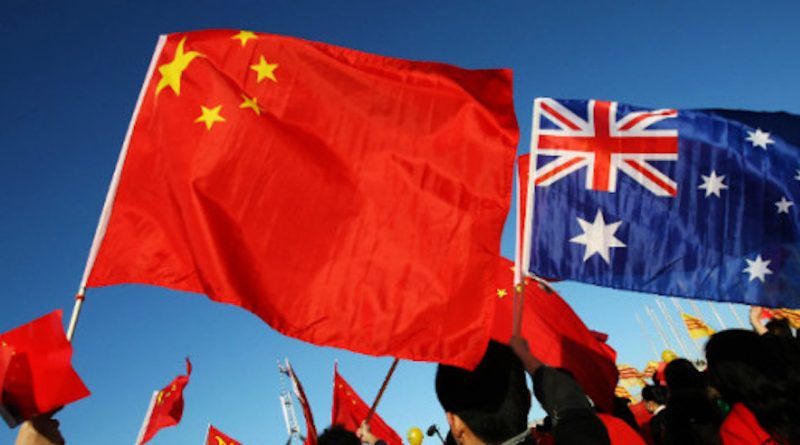Will Australia- China Trade Tiff Turn into a Trade War?
Sara Khalid
Staff Writer
Australia’s relationship with China, its largest trading partner, is increasingly strained as a result of a row over new Chinese trade restrictions. Relations between the two nations have been tense for years due to a series of policy disputes. When Australia supported an international inquiry into China’s handling of the coronavirus pandemic, their ties officially began to sour. The countries have faced more disputes than agreements over the years, like in 2018 when Australia became the first country to publicly ban China’s Huawei from its 5G network.
Australia and China signed a free trade agreement that went into effect on December 20, 2015; shortly thereafter, Australia quickly became wary of China. Australian government officials reasoned that exporters in every industry make assessments around the risks of trading with China and understand the greater the risk, the greater the potential reward, as reports CNBC. However, the financial stakes are high since China’s goods and services account for 27.4 percent of the world’s trade.
Currently, their rocky relationship leaves the Australian economy in the balance. It could be potentially severely damaged if trade ties were severed since the export market is worth nearly $104 billion. In February of 2019, China’s northern port banned imports of Australian coal until 2019, and in 2020, China halted imports from four of Australia’s largest meat processors. China is the largest buyer of Australian cotton, so when they ordered cotton mills to halt purchases of Australian supplies or face a tariff of 40 percent, Australia’s economy suffered, states Reuters.
These trade disputes spiraled to the brink of a trade war between the two, with the cotton industry in the middle of it. Roughly 65 percent of Australia’s crop goes to China. According to VOA news, after China imposed tariffs as high as 40 percent, most Australian mills were heavily impacted by the loss. Additionally, officials report that communication with the Chinese government is difficult, and as such, analysts recommend Australia demonstrate precise and delicate diplomacy to preserve the unstable trading relationship between them.
Australia’s vocal criticism of China and its handling of COVID-19 caused China to retaliate against the nation even further. Beijing went on to impose extremely high tariffs on many other areas of agriculture such as barley and wine, reports Fortune. This tactic of financial punishment leaves little room for the two nations to make peace.
Richard McGregor, a senior fellow at the Lowy Institute, China seemingly seeks to penalize Australia and make them an example to the rest of the world, reports They want to send a message to other countries that political disagreements are costly. However, China has remained adamant that they do not target Australia and are committed to trading rules, despite the suspension of Australian cotton purchases and other agricultural products. These aggressive tactics on China’s part certainly do not help Australia’s current recession, the first one in almost 30 years.
The Financial Review states that Joe Biden’s U.S. election win could help Australia reset relations with China and eliminate the chances of a trade war that would jeopardize billions of dollars’ worth of export goods. In the past, China has been reluctant to open communication with Australia. However, since China has repeatedly accused the Australian government under Prime Minister Scott Morrison of doing President Trump’s bidding, a new U.S. leader could smooth over tensions and pave the way for an improved relationship. Yet, some experts do not believe U.S. involvement in the relationship between Australia and China is enough to salvage the hostile and ongoing trade dispute.



